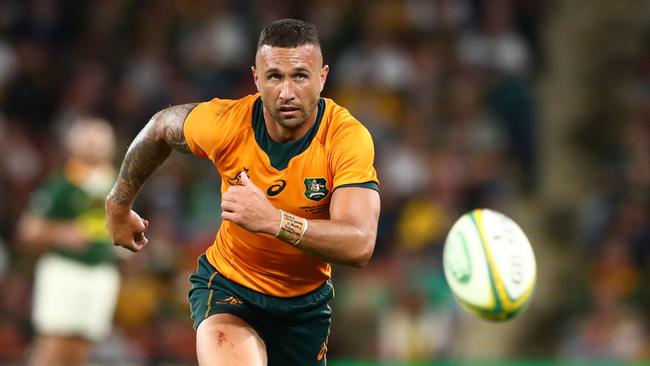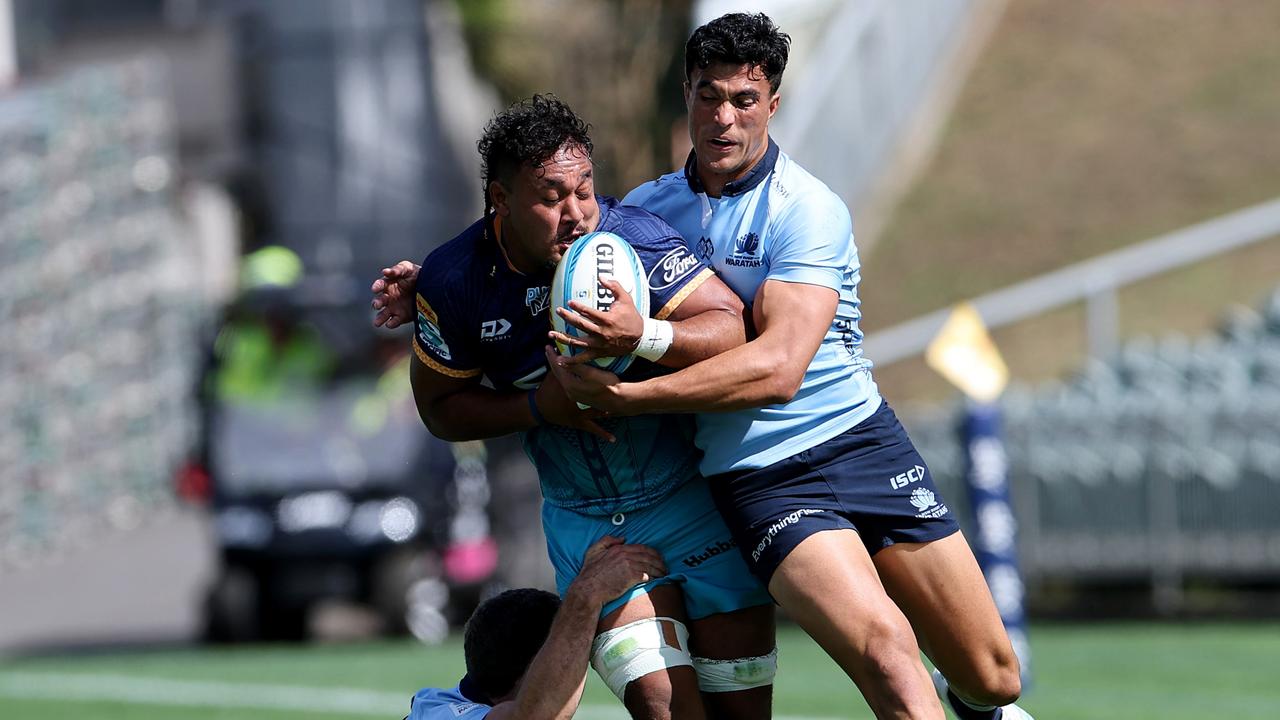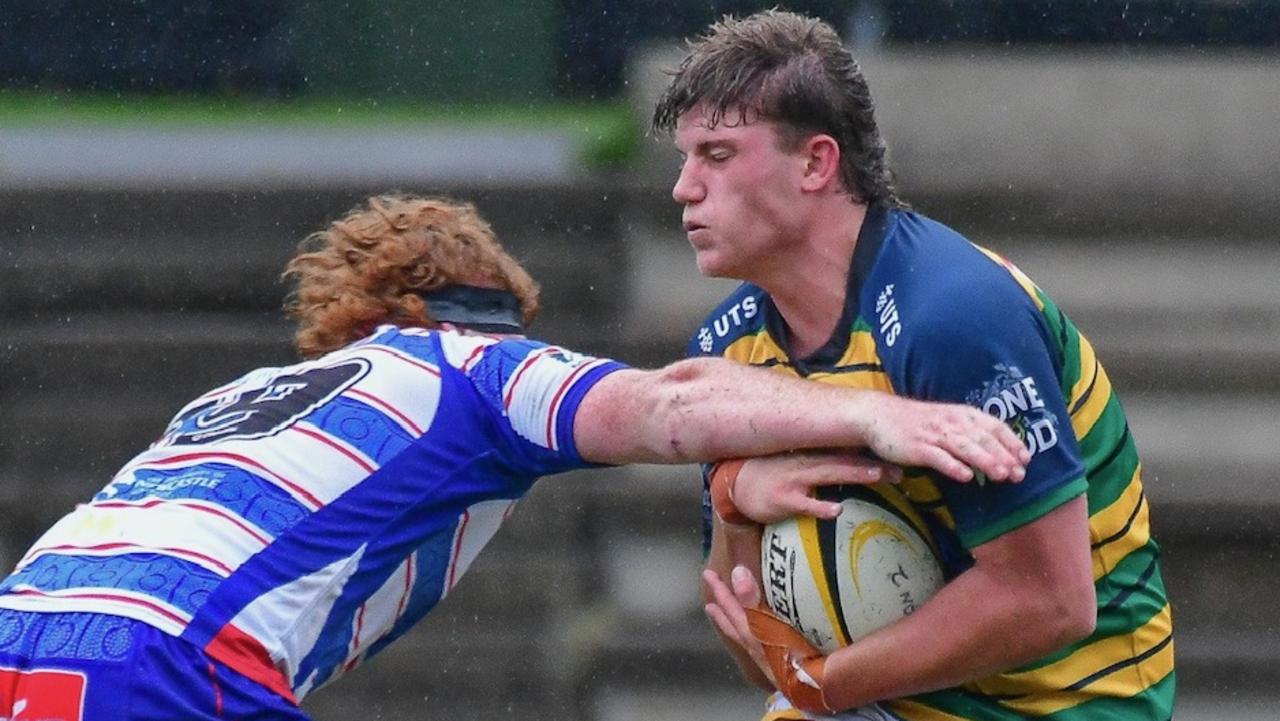
into the world’s largest semi-conductor company.
He knew a bit about winning and what it takes to win consistently. Grove argued simply: “Success breeds complacency. Complacency breeds failure. Only the paranoid survive.”
The Wallabies are fresh from two outstanding victories against South Africa, who have shown themselves, by the way they play the game, unworthy World Champions.
Their style of play does nothing for the future of the game. They deserved to be beaten.
They only knew how to kick the football; Quade Cooper provided the calmness and control to shift the football and play with it.
The Wallabies prevailed easily. These are significant triumphs.
The Wallabies’ biggest challenge this weekend in Townsville, as they take on Argentina, will be complacency. Complacency is defined as “a feeling of quiet pleasure or security, often while unaware of some potential danger”.
The former NBA coach Pat Riley, with whom I’ve spent some time, called it “a disease sitting on your shoulder just waiting for you to let your guard down.”
By the time teams realise they have become complacent, it’s often too late to avoid the consequences.
The best way for a quality coach to keep complacency out of the change room is to set the tone at the start of the week.
For the Wallabies, the theme for this week should be “proud but not satisfied”.
The four-try performance against the Springboks should give the team confidence. But the challenge is now to play even better against the Pumas.
It starts by doing a thorough analysis of the Argentine team and building a game plan to beat them.
Let’s have a closer look at that. First up, it would be a mistake to underestimate this outfit. Whilst they have lost four Rugby Championship fixtures against the Springboks and the All Blacks this season, they are very competitive and well coached.
Remember, the Wallabies drew both Tests against the Pumas last year and the Argentines are incredibly passionate and resilient. They will bounce back.
Their coach, Mario Ledesma, is a set piece specialist, so we can expect a forward challenge similar to the Springbok battle.
The Wallaby pack has done outstandingly, but if they were to get ahead of themselves they could pay the price against the Puma pack.
In the backs, their halves are clever and they have world-class kickers, thanks largely to the influence and prominence of soccer in their culture.
The Pumas’ goal kicker Emiliano Boffelli strikes the ball more cleanly than anyone in the game.
If we concede any penalties in our own half, we can expect it to cost us three points every time.
While Argentina don’t have the luxury of picking powerful ball carrying Pacifica midfield players, their centres do have incredible footwork, commitment and work rate; and out wide,
they have wonderful finishers with blistering speed.
Make no mistake, this Argentine team can play and they match up well against us.
They scramble in defence incredibly well; and last season, we struggled to score tries from close range.
So what’s a winning game to ensure victory for the Wallabies and stay alive in the race to win the Rugby Championship?
For me, the battle plan must start with a theme or a challenge that sets the tone and shapes the mindset for the Wallabies.
I always argued with my sides that, “To win without risk is to triumph without glory”.
This should summarise our game plan. We don’t want this Test to turn into an arm wrestle with the Pumas.
That’s what happened last season when, quite frankly, we didn’t know how to use the football.
Now we have Cooper.
He doesn’t need a licence to take risks. It’s in Cooper’s DNA.
The Pumas are hard to break down close to their own try line. So we should try to strike from deeper out.
Yes, there will be some risk in playing from our own half. But the rewards are high. And with the Argentine back three players standing deep to field kicks, there will be space out wide.
Cooper has proven himself to be magnificent in exploiting this in the last two Tests.
In general, we should be looking to keep a heightened tempo to the game, with quick throw-ins and quick taps.
Our back three players and our halfbacks must be given licence to do this as the Pumas’ tight five players will struggle if we can keep the ball alive for long periods of time.
The All Blacks had success from long range by attacking through the Pumas’ mid-field before attacking the blindside and isolating the big Argentine forwards.
There is no doubt Samu Kerevi can create “go forward” ball for us from set pieces. So it’s just a matter of who we want leading the attack as we look to hit back down the short side.
If I was picking the team, James O’Connor would be the fullback, running the short side attacking raids.
I have respect for Reece Hodge, but he did fail to step up against the Pumas last season when he had a penalty shot to win the second Test.
Surely a team with two experienced ball players such as Cooper and O’Connor would be a more lethal attacking unit.
The Pumas do give away offside penalties. My advice to Michael Hooper is to take the points on offer. But there will be times, around the halfway mark, when the halfback must have the licence to tap and go.
If we decide to put the ball into the corner and launch a drive, it must be noted that the Pumas are vulnerable on the fringes of the drive.
Their forwards are so committed to stopping a maul, they leave the fringes to be defended by the halves.
There is a gold-plated opportunity for Kerevi or our blindside wingers to power through the fringes close to the line.
The Puma halves are not short of courage. But the physical mismatch is an opportunity we should look to capitalise on.
It’s a simple plan that involves some risk. But there is high reward if we execute it.
The only thing that can bring the Wallabies undone in Townsville is themselves via complacency.
The American Baptist civil rights intellectual Benjamin Elijah Mays said: “The tragedy in life is not failure but complacency; not in doing too much but in doing too little; not in living above your means, but below your capacity. It is not failure, but aiming too low that is life’s greatest tragedy.”
Dave Rennie, I have been your critic, because I saw nothing changing. In the last couple of weeks, via Cooper and the determination to pick our best team and to pursue what I have
argued for years, the removal of Giteau’s Law, you have turned the corner.
For that I give you great credit.
Now, this is a further chance. Throw off the shackles. Trust the boys. Challenge the Wallabies to think big and take risks. “The tragedy in life is not failure, but complacency. Not in
doing too much, but in doing too little.”
This weekend has the potential to usher in a new era in Australian rugby. It is an exciting thought.




Andy Grove was a Hungarian-American businessman. He escaped from communist-controlled Hungary at the age of 20 and went on to become the third CEO of Intel, transforming it